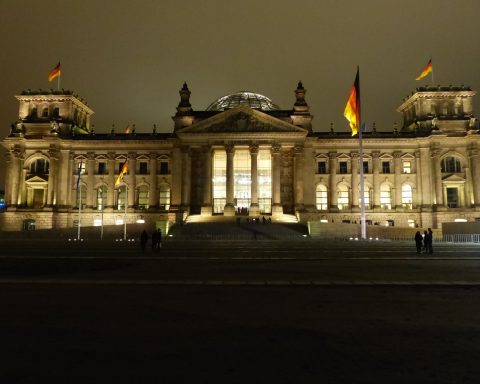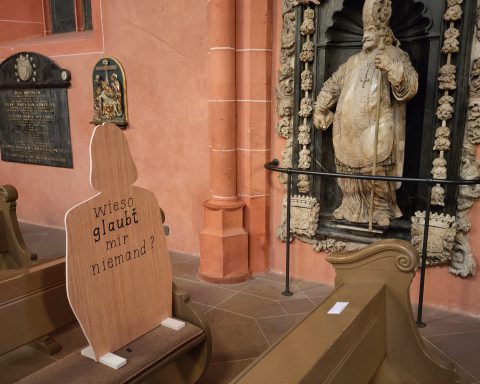“We have had, without formulating it, a conception of democracy as something static, as something that is like an inheritance that can be bequeathed… the crisis we are undergoing will turn out, I think, to be worthwhile if we learn through it that every generation has to accomplish Democracy over again for itself; that its very nature, its essence, is something that cannot be handed on… but has to be worked out in terms of needs, problems and conditions of the [changing] social life of which… we are a part.”
(John Dewey, The Later Works of John Dewey 13, p. 298)
Brexit. The extreme right growing in several European countries. The election of Donald Trump as the next President of the United States of America.
This is an ongoing movement asking, “when will democracy suit me and my concerns?”
The losers of “representative democracy” feel that political engagement was not worth it for them. Until now.
Both Bernie Sanders and Jeremy Corbyn have rushed out statements saying that neoliberal-based democracies do not govern for the good of the people – globalisation squeezes the vulnerable out, both economically and philosophically.

They ask, “when will government finally start making the hard decisions about fairness and income redistribution, and demonstrate inclusiveness in the political process?” When “The Donald” asks voters powerfully, “what have you got to lose?”, he hits a nerve that populism can exploit: the lack of control over our lives despite our best efforts to cope with increasing alienation.
Trump places himself in the “Ultimate Outsider” role. He says he is not a politician. Even the Republicans can’t keep him on a leash. He is the pseudo independent candidate of 2016.

Professional politicians represent a system which holds on to power for their own self-interest – that is the logic to Trump’s popularity. Further, his comments about the election being rigged only add an aura to the Ultimate Outsider. Rather than actually doubting the election mechanism per se, it underlined his status as challenging an elitist democracy.
We know that democracy needs to be revitalised in some way.
As we look around, we see the dismantling of democratic structures in our own neighbourhood: Hungary, Poland and now Turkey. More intensive conversations discussing the future of democracy in our generation are needed.
Domestically, the question is gaining interest on the eve of next year’s federal elections. This is exacerbated with the hand-wringing around the candidacy for a post-Gauck presidency.
No one’s happy about a mutual candidate, and godspeed some functional envelopes to Austria, please.
The CDU reacted to poor poll results with a national survey, asking citizens what would make them happier. Results released recently found two (hardly surprising) answers: domestic security and financial stability.
The fact that they even need to ask shows a selective blindness to what the electorate has wanted for years, but they would rather have less inconvenient answers.
No one argues that doctors or engineers are too professionalised, but politicians are on the run in a cultural sense. When will they stop apologising for having specialist knowledge and expertise to call upon, and get on with critically assessing the problems in the system rather than poll watching?

We need a conversation about the nature of direct democracy and the role of representative democracy.
We are experiencing in our time a crisis of confidence in political decision-makers’ ability to listen to the concerns of the populace. It only follows, that the AfD’s request for more direct democracy resembling that of Switzerland would resonate with many voters.
This is bolstered by the international trend of turning to referendums or plebiscites with questions felt politically “too hard” to pin on one major political party, such as same-sex marriage legislation in Australia or staying in the EU.
People want to feel that there are some aspects of direct decision making beyond parliament within the current setup of democracy; it also provides wiggle-room for elected representatives to avoid some responsibility and potential consequences.
The recent High Court decision places the onus on the British Parliament to vote on triggering Article 50 for the Brexit. It will be up to the conservative whips and a divided opposition to accept the result of the referendum, with a vote they had tried to avoid in the first place.
Here is a simple case of yielding ground to the direct democracy movement which cannot be taken back, despite a technical opportunity to do so. How can it be, that we do not understand the nature and strengths of a representative democracy?
Returning to the words of John Dewey, our generation has rested on the laurels of others.
Democracy is the only peaceful mechanism we know of for the transition of power and administration in a nation. A well-founded feeling of disaffection towards institutions which seem to work towards their own retention of power, bolstered by unbridled neoliberal agendas, has led to distrust in those historic mechanisms which have regulated society.
Adding to that, the rise of “alternatives” which, by definition, must challenge democratic concepts, has continued without a willingness by liberals to debate the flaws in a very imperfect system.
Rightfully, people who have been left behind by the march of globalisation and bewildered by the complexities of reality are going to want some kind of inclusion. Whilst respect is what people yearn for, ongoing exclusion is going to lead to a rejection of liberal democratic values through sheer frustration.

Marine Le Pen was one of the first to congratulate President-elect Trump from her growing far right-wing niche in France. Frauke Petry finds the Trump presidency a good thing.
And why wouldn’t she? The trend towards demagogy feeds voter potential here. If we aren’t willing to accomplish democracy in our own generation, what’s next?








